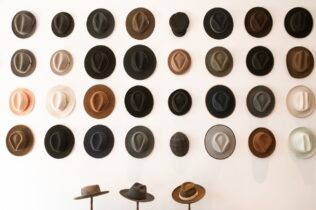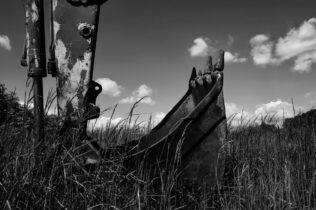
Photo by Annie Spratt.
The pandemic isn’t over just because you’re over it.
Those of you on TikTok just hummed that line. Back in early pandemic, the upbeat track was everywhere. Featured in an array of videos highlighting non-pandemic-safe activities.
That was back when we were still outraged that politicians went on vacation while telling us to stay home. Or that a salesman kept traveling even after he’d lost his sense of smell and taste. And when we were still trying to get boomer parents to follow the rules. And they refused to comply, like overgrown teenagers.
That seems like a long time ago. Not only the outrage but the idea that we would all be in it together.
We’ve been at this a year and the longer we’re at it, the less together it feels.
Too tired for outrage
As we approach the anniversary of the first lockdowns, we’re not over the pandemic, per se. But we are very over the outrage.
The anger and frustration at people not adhering to public health guidelines? Replaced by a shrug.
What can you do? People are going to make poor decisions. Eleven months in, it’s not my job to remind you that the mask doesn’t work if it’s not affixed over your nose.
How do you not know that by now? And if you know it, how do you not care?
More profound than the shrug, is the underlying fatigue. The sheer exhaustion of a year spent laying bare, the truth as it has always been. We are all in it together. Except some of us aren’t in it at all.
We’re not trying to be downers but there is a real thing happening. And we should talk about it. Because the shrug is important. And there’s an awful lot that’s coming along with it.
If the outrage was at one end of the pendulum, apathy is at the other. And when it swung, it swung hard.
Outrage is a response to the interconnectedness of everything. It also gets at a core piece of the human experience. This idea of fairness. If you’re doing the work to stem the spread of Covid but no one else is, that work is futile. It also means a set of glaring inequalities about your life in relationship to others.
Those people get to travel. They get to see grandparents. They go grocery shopping at a leisurely pace. They get to catch up with friends. And you…don’t.
Humans are incredibly sensitive to fairness. A natural first response to things being unfair is rage. But a year of rage and there’s not much left in the tank. What’s left is a deep ache. The hurt of having to stop doing these things. And the hurt of watching others keep right on doing them. And faced with ongoing reminders of unfairness, a bunch of us have retreated inward.
The shrug at work
It’s not just that this shrug is happening with neighbours and friends. It’s happening with random strangers. And it’s also playing out across our workplaces.
Right now, many of us are having a hard time tracking anything more than what’s in front of us. We’re living a tiny little serenity prayer. And spending all our effort on the things that we can control.
At work, lots of folks are finding it hard to track externalities. And even if they can, who has the energy to go chasing them? As though we need any more reminders that other people’s poor decisions can adversely impact us? It’s no wonder that move inward is showing up at work, too.
People are onboarding into teams where they still haven’t met most of their colleagues. We have bosses so stacked in meetings that they can only focus on what their team is meant to deliver. And while they have a small island of work happening, there’s limited communication to the rest of the org.
We’re setting our goals in literal and figurative isolation. And if you feel like fiefdoms have been popping up at work, that’s because they have. We ask leaders about their company culture and they ask us, “you mean before? or now?”
And the reason they need to clarify is because the before answer is radically different. It’s not that they don’t have culture now. It’s just that the answer is team specific. Not org-wide. Because many of them have never experienced what it’s like when the whole company is together. They have no notion of org-wide culture because they joined in a post org-wide culture era. And yes, if you’re a boss, you should go re-read that sentence and let that sink all the way in.
Productivity has never been higher
Okay so we’re all more isolated but like, so what? Right? Keeping yourself safe is a good thing. Withdrawing from spaces and relationships that are overwhelming or harmful is a healthy choice. Honestly it’s one we wish we’d both learned sooner.
But when everything is a source of anxiety. When you’re so fried that you withdraw from every relationship and every space. When your day becomes: pull inward, keep your head down, keep yourself hydrated, and do what you can to get through it. When that happens, we should talk about what we lose.
The answer is not productivity. There are a plenty of CEOs out there who still want to talk about how productivity hasn’t dropped. Well, sure. We’ve seen layoffs, office closures, and a semi-permanent 2-hour expansion of the work day. Per-employee productivity is through the roof right now.
But it doesn’t feel good. Because we have lost other, more important things.
We don’t want to care any more about our neighbours’ social distancing. But we do care about our neighbours. We don’t want to care about some other team’s priorities and decisions. But we do care about our colleagues. About doing good work together. And the withdrawing, meant to protect us, ends up doing its own damage.
Isolating ourselves also means isolating others. Because another thing that suffers when everyone in a workplace (or a society) pulls inward, is allyship. The scarcity creeps in. Of time. Of attention. Of energy to reply to a message asking the group for help, not knowing where those reserves are going to come from. Of willingness to go to bat yet again to make sure the right people are even included on the fucking meeting invite.
It’s fair to need rest. To have moments when you know you’re no good to nobody. But what happens when we all withdraw at the exact same time?
A sprained metaphor
If you’ve ever sprained something, or torn something, or gone through a round of physiotherapy, you know this. After an injury, the damaged muscle tightens up to protect itself; to prevent things from getting worse. Which is great. Until it isn’t. Because once the threat is gone, the injured muscle is still tight. Sometimes so tight that it hurts to move. So tight that all you can do is shrug.
The only way to get your range of motion back is through slow, intentional, careful stretching. It starts when you notice that you’re hunched over. Some of you just sat up straighter in your chair. You can laugh about it if you want, but it’s a good start. The reconnecting is important. Take a deep breath, while you’re at it.
We can’t tell you what kind of stretch you need. It might be about connecting with people on your team that you’ve never met outside of a zoom window. Or replying to the email asking for help, that you keep marking as unread. Whatever it is, it’s gonna feel awkward to extend again, to re-integrate with stuff you’d shut out. Physio folks say “discomfort is okay, pain means we stop for a bit.”
In 3 weeks it will be spring. Again. The experts (and the TikTok-ers) say that the pandemic isn’t over, and we’ve still got a long way to go. But we might be at the beginning of the end. As we step back into the sunlight, we’ve all got some healing to do. But a thing that’s clear – that’s obvious once we say it – is that none of us can do it alone.
– Melissa and Johnathan






